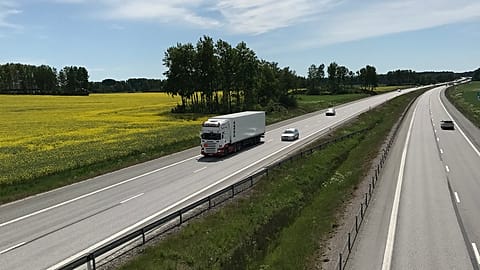An international crackdown on marketplaces on the dark web has brought the fight against illegal trades to shadowy corners of the Internet.
A record number of "dark web" drug traffickers were arrested last week thanks to a joint operation by the US Justice Department, Europol, and law enforcement officers from nine different countries across three continents, including Brazil and Poland.
 ADVERTISEMENT
ADVERTISEMENT
 ADVERTISEMENT
ADVERTISEMENT
Until now, international authorities had faced the challenge posed by drug trafficking on the dark web by shutting down the websites used to manage such illegal business.
With Operation SpecTor - which began in October 2021 - international authorities used the data obtained from several dark web websites shut down in recent years to trace the criminal networks behind the online sale of illegal drugs.
Their investigation led them to arrest a total of 288 people across the world on May 2, with 153 in the US alone, which is currently in the grips of an opioid crisis that is killing thousands. Some 55 people were arrested in the UK and 52 in Germany, according to Europol.
Authorities reported seizing 850 kilograms of drugs—including the deadly fentanyl - €50.48 million in cash and cryptocurrencies, and 117 firearms.
It’s the biggest international operation targeting this kind of traffic happening on the darkest corners of the Internet - the ones most people never dwell on, and many don’t even know how to reach.
But the dark web has been a steady presence in the shadow of the more mainstream Internet for years now.
What is the dark web?
Imagine your online activity as something akin to walking through the labyrinthine streets of a city.
Now, imagine that underneath that same space that you inhabit every day, there’s an entire other city sprawling underground, which can only be accessed through secret passages known only to some.
The "dark web" - or darknet - is a bit like that. It’s an encrypted part of the Internet that cannot be found via conventional search engines and is only accessible through specialised tools that provide anonymity.
If you search the term "dark web" on Google, for example, you won’t be able to find a link to actual darknets.
Those in favour of the dark web say they use it because they’re worried about the use of their private information by Big Tech - companies like Google and Meta - and want to browse the Internet with an additional level of anonymity.
But since its creation in the early 2000s, the dark web has been associated with illegal and unethical content which its creators or distributors want to keep out of the prying eyes of law enforcement.
It’s known to host a flourishing network of marketplaces selling drugs, weapons, pornography, and other generally illegal products - including people’s personal data.
Cryptocurrencies, though not directly linked to the dark web, are often used for transactions on websites on the darknet.
Data released by Global Drug Survey in 2021 found that in the previous year, the percentage of people who buy drugs on the dark web had tripled since 2014 and exploded in 2020, likely in connection with the COVID-19 pandemic.
A total of 15 per cent of respondents said they had bought their drugs from darknet marketplaces.
The dark web is also a breeding ground for extremism. The Washington-based Wilson Center has warned over the presence of thousands of extremist groups’ websites on the darknet, including neo-Nazis, and white supremacists.
The think tank has repeatedly warned against the use terrorists are making of the darknet for transferring funds and finding recruits.
What’s the difference with the 'deep web'?
There’s often confusion between the dark web and the "deep web".
The deep web is any part of the Internet that isn’t indexed by search engines - which means its websites aren’t organised through the process normally used by search engines to identify relevant information.
The deep web is massive; it is estimated to represent 90 to 95 per cent of all the content online.
According to the website Expressvpn, the Deep Web contains 7,500 terabytes of information, compared to only 19 terabytes of information in the "surface web". These include websites you access every day, like Gmail or Google Drive, or your bank account.
The dark web represents a tiny part of the deep web, with only an estimated thousands of websites currently active.
Unlike Deep Web sites, websites on the dark web use additional encryption software that makes the location and identity of their users anonymous.
Are authorities doing anything about the dark web?
Accessing the dark web is not illegal, and some using the darknet might not do so with any illicit or unethical intention. The dark web is used by dissidents, whistleblowers, journalists, and activists who might fear censorship and retaliation at home. WikiLeaks, for example, is hosted on it.
"For individuals living under oppressive regimes that block large parts of the Internet or punish political dissent, the dark web is a lifeline that provides access to information and protection from persecution," the International Monetary Fund’s (IMF) Aditi Kumar and Eric Rosenbach wrote in a recent blog post.
"In freer societies, it can be a critical whistleblowing and communication tool that shields people from retribution or judgement in the workplace or community".
But calls to regulate the dark web - and the use of cryptocurrencies on its websites - have increased in recent years as illegal trades have exploded on the darknet. "The same privacy and anonymity that deliver protection from tyrants and targeted advertisements also make the dark web a springboard for crime," Kumar and Rosenbach added.
The combination of the data protection offered by the dark web and cryptocurrencies has encouraged a boom in illegal marketplaces on the darknet, according to the experts - though this is still a small part of the global illicit trade.
Yet authorities in the US and Europe are increasingly moving to halt the sale of illegal products on the dark web. In April last year, German and US authorities shut down Hydra, the then-highest grossing dark web market with an estimated revenue of €1.23 billion, according to Europol.
Two previous international operations led by European and US authorities - DisrupTor in 2020 and Dark HunTor in 2021 - led to 150 arrests.
Within this context, the success of Operation SpecTor shows that increased cooperation between international authorities is proving effective in targeting dark web criminals.
"Our coalition of law enforcement authorities across three continents proves that we all do better when we work together," said Executive Director Catherine De Bolle of Europol.
"This operation sends a strong message to criminals on the dark web: international law enforcement has the means and the ability to identify and hold you accountable for your illegal activities, even on the dark web".
But US Attorney General Garrick Marland was cautious in his optimism following Operation SpecTor - saying that as soon as authorities shut down an illegal marketplace on the dark web, another reemerged.
"There is a bit of a whack-a-mole problem here, and we are whacking as hard as we can," he said.


















